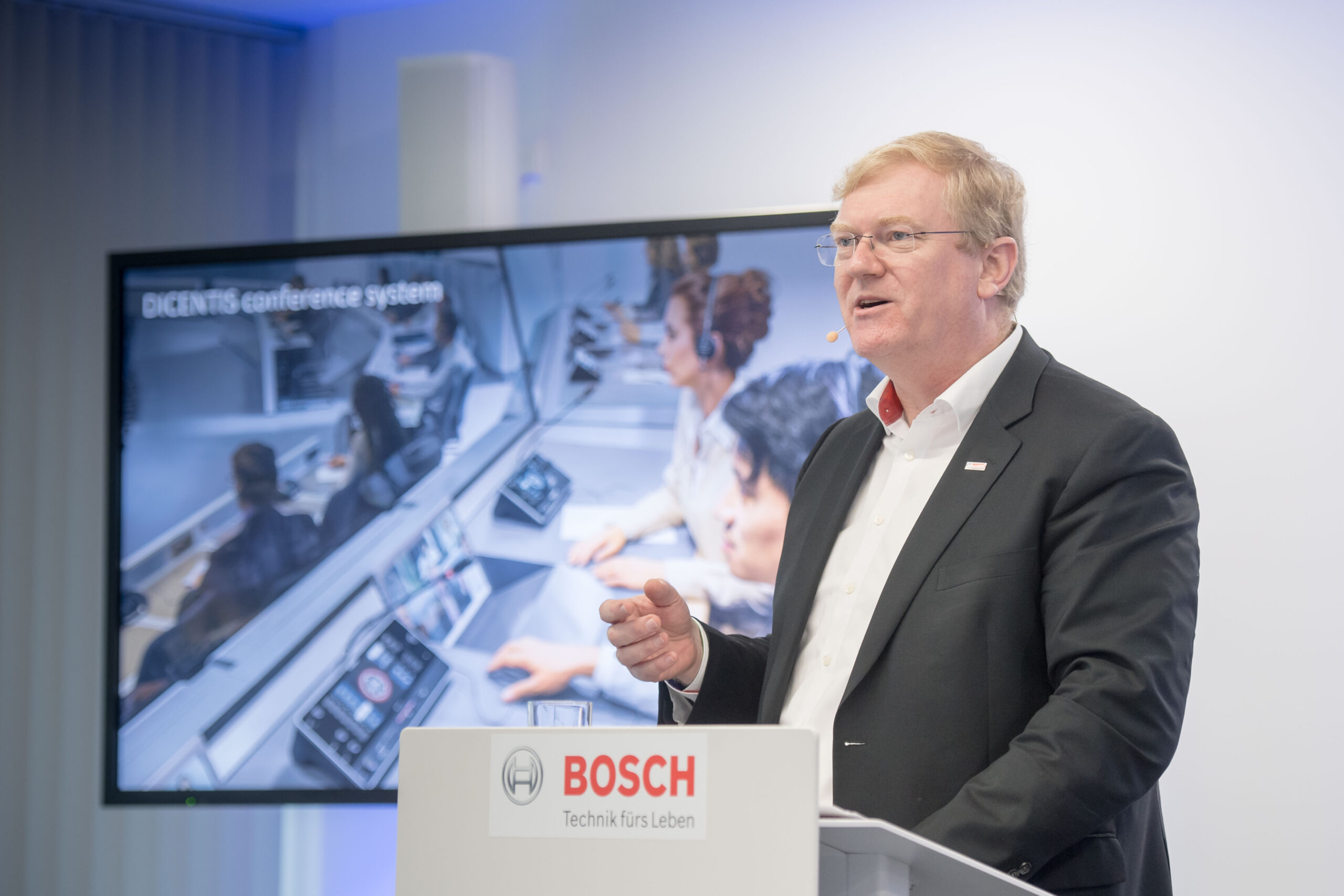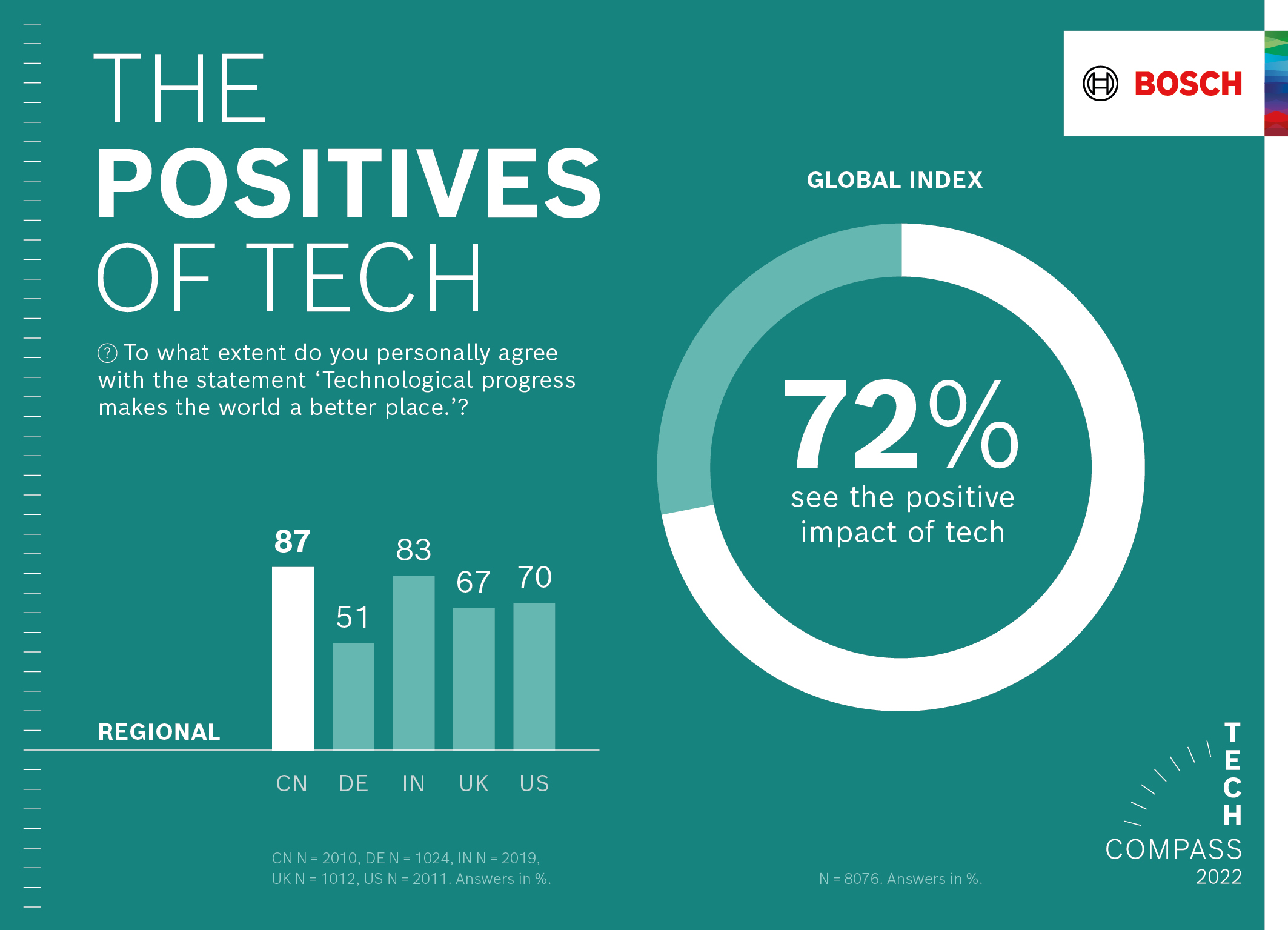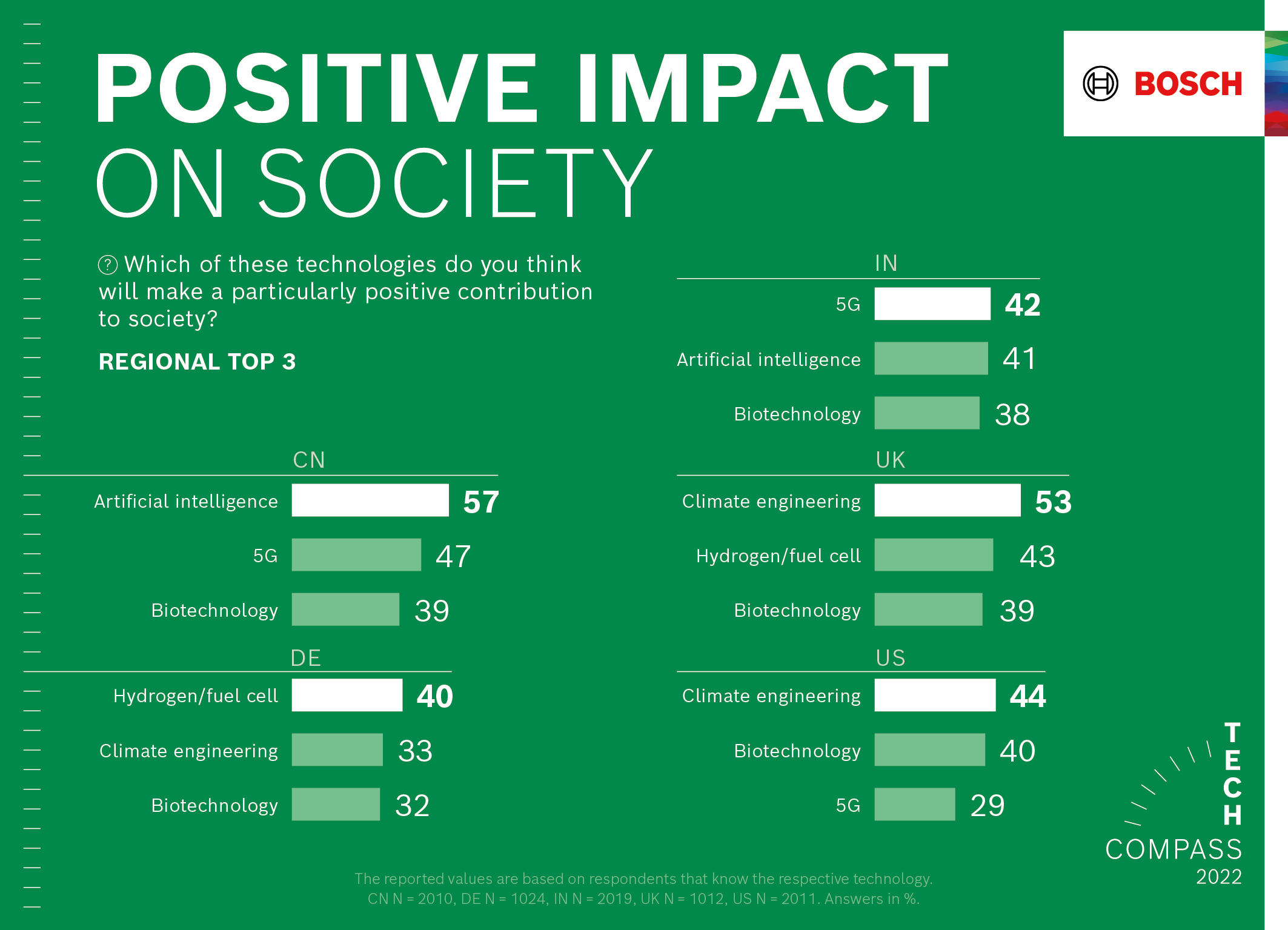LSST students ask Bosch how technology will make the world a better place
By Kunal Chan Mehta | Article Date: 24 January 2022

Technology, the engine of human advancement, has been the driving force behind progressively increasing longevity, prosperity, and the quality of life for societies around the world. Modern life would be unimaginable without it.
Breakthroughs such as the printing press, the light bulb and the car took tiresome decades to become part of daily life. Comparatively, recent technological advancements on the internet, smartphones, and computers take much less time to become ubiquitous. But what does the world think about technology?
To find out more, LSST students were offered a remarkable opportunity by tech giant Bosch to ask its leaders vibrant questions about what the future world of technology should look like. Students covered a myriad of contemporary subjects including the Bosch Tech Compass, COVID-19, climate change, space travel and sustainability.
Speaking about the Bosch project, Mr Ali Jafar Zaidi, LSST’s Deputy CEO, said: ‘I am delighted to hear from Kunal Chan Mehta, our PR Manager, that global Bosch leadership teams thanked LSST students for their great questions and the variety of important topics covered.
LSST is immensely proud to represent a large number of women participants for this tech-based project. According to WISE, women remain highly underrepresented in the UK’s technology workforce and only 23% of the people working in STEM (Science, Technology, Engineering and Mathematics) roles across the UK are female.’
Irina Barariu, LSST’s Student Union President:
What is the Bosch Tech Compass 2022 about?
The Bosch Tech Compass aims to trigger a debate about the effects of various technologies on the globalised world and our society. Now is the time to decide what kind of technological future we want, and we need to agree on the direction we want to take.
“The Bosch Tech Compass shows that people want technology that addresses the problems of our time,” says Bosch CEO Stefan Hartung. “Technology should support us, make life easier overall, and make the world a better place. This is why we at Bosch are committed to technology that is ‘invented for life’ and serves people.”
The Bosch Tech Compass was revealed at the CES show in January 2022 and it’s intended to provide a frame of reference in this discussion.
Will there be one in 2023 also?
We’ll consider it, but we’ve not made a decision just yet.

The Bosch Tech Compass shows that 72 per cent of participants believe that technology makes the world a better place. Is this figure expected to increase over time?
While we aim to use technology to improve people’s lives, we can’t say how that figure might change over time. Perceptions change, so for example as new technology comes to the market our customers may increase their expectation of what technology should be capable of – most new technology is eventually accepted as normality. In addition, different regions have a different view on how technology improves the world.
It would be 100 per cent if Bosch works with me to create the world’s first washing machine that irons clothes.
Ha-ha, very true! I imagine it’s something we’re working on somewhere…


Ancuta Racasan, Business Management student at LSST’s Wembley campus:
Thanks to MIT and LSST, I will have my messages on space harmony launched to the International Space Station later this year. Are you doing much in the space arena?
We are! Bosch has a long history in developing very advanced sensors and in 2019 we developed our SoundSee sensor so that it can be used in the International Space Station. The SoundSee sensor listens to the ISS and analyses any unusual sound patterns that it picks up. This can lead to a much earlier diagnosis of any faults within the ISS. We’re also using the same sensor to help detect changes in children’s breathing in the hope that we can give an early warning to asthma sufferers that they might be about to suffer an asthma attack.
In addition, we’re working with a company called Astrobotic alongside NASA to develop technology to wirelessly charge small robots that could be operated on the moon.
From our research, innovation never sleeps at Bosch. The Bosch Group generated impressive sales of 71.5 billion euros in 2020. Is this figure vastly based on Bosch pursuing a vision of mobility that is sustainable, safe, and exciting?
Bosch is a large company that has four core business areas: mobility solutions, industrial technology (particularly Bosch Rexroth), consumer goods (Bosch Power Tools and BSH), and energy and building technology. They all contribute to our business but mobility solutions is the largest contributor and is a very exciting part of the business.
Mobility solutions is all about developing software for cars, electric powertrains, assisted and automated driving technology, and other chassis control systems such as steering and braking systems. We will always have safety as the priority and in addition, we’re focusing on sustainable and exciting products too.
No company can match Bosch for the diversity of its electromobility portfolio – from silicon carbide chips to complete e-axles, and from factory equipment for battery production to battery-in-the-cloud technology, we have a lot of expertise and that includes hydrogen powertrains, too. We believe the right technology should be used for the right purpose. For example, we’re world leaders in developing electric powertrains for cars (and eBikes!) but we’re also developing hydrogen fuel cells to power lorries.

Judyta Grajko, Health and Social Sciences student at LSST’s Elephant & Castle campus:
Where does Bosch see itself in 5 years – especially in the healthcare market?
Bosch does a lot of work in healthcare and we have the Robert Bosch Hospital in Stuttgart, Germany. The Hospital’s funding is supported by the Robert Bosch Stiftung, the charitable foundation that owns 92% of Bosch. Here we carry out research and some of that experience helped us to develop a rapid coronavirus test in 2020.
Bosch often works with other companies in the healthcare industry to bring in their expertise to ensure faster and more accurate product development, and asthma is one area that we’re working on at the moment.
For more information visit: https://www.bosch-healthcare.com/en/whats-new/news/neuer-corona-schnelltest-von-bosch/
Technology should benefit everyone. How does Bosch remain successful and competitive? The balance must be challenging.
We agree that technology should benefit everyone. Our brand statement is ‘Invented for life’ and we mean a few things through that. We will continue to invest in research and development to create products and solutions that improve people’s everyday lives. And those products must be available to as many people as possible. By doing those two things we can hopefully ensure success with our products and we can also ensure we remain competitive.
As an example, Bosch developed the anti-lock braking system for cars in the 1970s and it was seen as an exciting and must-have feature, whereas now you’d be shocked if you bought a new car that didn’t have ABS. Similarly, an advanced new car today might be able to navigate on its own in a car park equipped with the right technology and that’s also very exciting – you no longer have to park the car yourself – but maybe in 15 years it will be completely normal for all new cars to self-park
Igwebudu Nzekwe, Health and Social Sciences student at LSST’s Elephant & Castle campus:
With your technological innovations across mobility solutions, consumer goods, energy and building technology and industrial technology how do you balance risks with rewards?
Bosch has a strong track record in technological innovation and that experience is very important. In addition, we take a clear view of the market – company’s need to have a clear plan. Bosch has a very diverse product portfolio and that can help to smooth out the challenges associated with researching and developing different types of products and marketing a variety of products in various different timeframes.

Nicoleta Covaci, Health and Social Sciences student at LSST’s Elephant & Castle campus:
LSST met with the world’s first Robot Citizen – Sophia. But, as promising as it looks, are robots taking over the jobs of people that would find it hard to reposition? Just do not see why this is a decent thing.
Robotics is an important topic and is an area that is likely to require careful regulation from governments. Currently, Bosch has two areas in which we develop robots. One is in vacuum cleaners and lawnmowers. The other is a human-robot collaboration (HRC) production assistant called APAS that can work closely with humans, and it is the first robot of its kind.
For more information visit: https://www.bosch.com/research/know-how/success-stories/bosch-apas-flexible-robots-collaborate-in-industry-4-0
Sonia Van De Linde, a Health and Social Sciences student at LSST’s Elephant & Castle campus:
Technology per se is not a threat, people are. I believe that technology makes the world a better place, but I also believe that it is up to us to make the best of technology. Is this within the framework of Bosch’s mission and understanding too?
It certainly is. Bosch is all about developing products and services that are ‘Invented for life’. That means being associated with quality and trustworthy technology. We want to help make work easier, traffic safer, buildings more energy efficient, and household appliances even more helpful. A prerequisite for this is that the solutions are accepted, and people trust them. Therefore, we work on AI ethics and we ensure we’re at the forefront of digital trust.

Zsofia Borbely, Business Management student at LSST’s Wembley Campus:
How are your products going to become a remedy for climate change? It would be a fascinating insight for me and other students to learn more about how Bosch aims to tackle the major problems of our time.
Climate change is a task for industry and politics in equal measure. Our common goal must be to maintain a balance between economic, ecological, and social concerns.
Industry is already playing its part, as demonstrated by Bosch’s climate neutrality with its more than 400 locations worldwide since 2020. We are well positioned to provide technological answers to current challenges – whether in the field of battery-electric mobility or of hydrogen applications for mobility and buildings. Businesses and regulators must also take an open-minded approach to technology paths. For example, hydrogen could be a more logical fuel for powering lorries than electricity.
Fozla Chowdhury, Health and Social Care student at LSST Luton campus:
Your focus on biotechnology is remarkable. Are there any success stories on your technology helping combat COVID-19?
There are! Bosch Healthcare Solutions used our Vivalytic device as a basis and adapted it so it can diagnose Covid-19. We then adapted it to work even faster, while ensuring the results are highly accurate.
We also rapidly put five production lines into operation to manufacture half a million facemasks per day, and we made the designs of the machines free for interested companies.
For more information visit: www.bosch-presse.de/pressportal/de/en/combating-the-coronavirus-pandemic-bosch-develops-rapid-test-for-covid-19-209792.html
Simone Lewis, Health and Social Care student at LSST Luton:
You have an impressive score on the 2021 Global RepTrak® 100 – how will you improve this?
This is similar to what we said in reply to a question above but we strive to continue being associated with quality and trustworthy technology. We want to help make work easier, traffic safer, buildings more energy efficient, and household appliances even more helpful.
In 2019 Bosch started an initiative to strengthen trust in digital products and services. This approach met with interest and recognition on a national and EU level.
Loredana Forward, Senior Student Ambassador and Business Student at LSST Birmingham.
Bosch became the first globally operating industrial enterprise to achieve climate neutrality in 2020. What plans do you have for 2022 to shape climate action?
No other global industrial enterprise has formulated a comparable voluntary commitment and made a similarly ambitious promise to the environment. To put it into practice, Bosch has been using four levers: increasing energy efficiency, using renewable energies, expanding the purchase of green electricity, and – as a last resort – offsetting unavoidable CO₂ emissions with carbon credits.
Carbon neutrality was achieved in 2020, and Bosch is already working on the next steps. Torsten Kallweit, head of EHS (Environment, Health, Safety) and Sustainability at Bosch and thus also responsible for achieving the group’s climate targets says: “Carbon neutrality was our first major milestone. We were the first large industrial enterprise in the world to demonstrate how quickly a carbon footprint can be reduced to zero. The task now is to further optimise the mix of the four levers – in other words, to refine the measures used. Only then can we reduce our climate impact in the long term – and that’s what really matters.”
Another goal is also already in focus: by 2030, 15 per cent of indirect emissions are to be saved, which corresponds to more than 60 million metric tons of CO₂. These are emissions that occur outside Bosch’s direct sphere of influence – for example, at suppliers, in logistics, on business trips, or during product use. The experts refer to this as scope 3. Torsten Kallweit added: “We have therefore set ourselves climate action targets along the entire value chain.”
LSST’s Student Union will soon be arranging student events to discuss the Bosch Tech Compass and the woeful gender gap in the UK technology sector.
Please email kunal.mehta@lsst.ac for any questions or comments about the article.
The Bosch Group is a leading global supplier of technology and services. It employs roughly 395,000 associates worldwide (as of December 31, 2020). The company generated sales of 71.5 billion euros in 2020. Its operations are divided into four business sectors: Mobility Solutions, Industrial Technology, Consumer Goods, and Energy and Building Technology.
As a leading IoT provider, Bosch offers innovative solutions for smart homes, Industry 4.0, and connected mobility. Bosch is pursuing a vision of mobility that is sustainable, safe, and exciting. It uses its expertise in sensor technology, software, and services, as well as its own IoT cloud, to offer its customers connected, cross-domain solutions from a single source. The Bosch Group’s strategic objective is to facilitate connected living with products and solutions that either contain artificial intelligence (AI) or have been developed or manufactured with its help.
Bosch improves quality of life worldwide with products and services that are innovative and spark enthusiasm. In short, Bosch creates technology that is “Invented for life.” The Bosch Group comprises Robert Bosch GmbH and its roughly 440 subsidiary and regional companies in some 60 countries. Including sales and service partners, Bosch’s global manufacturing, engineering, and sales network covers nearly every country in the world. With its more than 400 locations worldwide, the Bosch Group has been carbon neutral since the first quarter of 2020. The basis for the company’s future growth is its innovative strength. At 129 locations across the globe, Bosch employs some 73,000 associates in research and development, of which nearly 34,000 are software engineers.
The company was set up in Stuttgart in 1886 by Robert Bosch (1861–1942) as “Workshop for Precision Mechanics and Electrical Engineering.” The special ownership structure of Robert Bosch GmbH guarantees the entrepreneurial freedom of the Bosch Group, making it possible for the company to plan over the long term and to undertake significant upfront investments in the safeguarding of its future. Ninety-four percent of the share capital of Robert Bosch GmbH is held by Robert Bosch Stiftung GmbH, a charitable foundation. The remaining shares are held by Robert Bosch GmbH and by a corporation owned by the Bosch family. The majority of voting rights are held by Robert Bosch Industrietreuhand KG, an industrial trust. The entrepreneurial ownership functions are carried out by the trust.
For further information visit www.bosch.com




